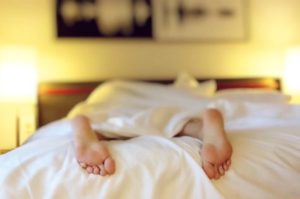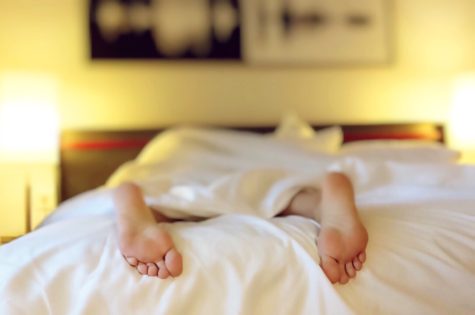STATE COLLEGE, Pa. — It’s no secret a good night’s sleep is essential for maintaining a healthy lifestyle, but a new study finds our nightly slumber has a significant impact on our daily stress level and vice versa.
Sharing their work in the Journal of Sleep Research, researchers at Penn State published two highly-related findings derived from two separate studies: one that found daytime stressors affect sleep quality and quantity at night; and another that found nighttime sleep quality and quantity affect stressors the subsequent day.

“Sleep plays a central role in our daily lives. A day with less stress and conflict is followed by a night where it’s easier to get to sleep. Having a good night of sleep is more likely to be followed by a workday with less stress and conflict,” senior author Orfeu Buxton, who is also an associate professor of biobehavioral health at Penn State and director of the Sleep, Health and Society Laboratory said in a release. “In this case, sleep is a powerful source of resilience in difficult times.”
The first study to support this conclusion involved 1,600 daily interviews with 102 mid-aged IT workers. Researchers found these employees had high levels of stress and little free time to tend to their responsibilities, which led to both interrupted sleep and a longer amount of time to fall asleep.
They also determined that a stressful day at the office led people to exercise less and a greater chance of poor sleep that night.
Not only did less and worse sleep cause more conflict with family, friends, and coworkers, but it led participants to exercise less and engage less with their children. That same interpersonal and occupational stress during the day would fuel poor sleep, fulfilling a virtuous cycle.
A second study with the same structure was conducted upon extended care workers, in order to see if wages and professional standing played a factor in their findings. Ultimately, both studies found very similar results.
A related study published in the journal Annals of Behavioral Medicine looked at emotions and their effect upon sleep. Researchers reported that better sleep was largely contingent upon positive emotions and life events, and vice versa.
“Our results suggest the possibility that efforts to improve sleep quality may promote better mood and reduce stressors across work and personal contexts,” Sin said. “This study underscores the important contributions of psychological and contextual factors in everyday life for sleep and health.”

Comments
Comments are closed.